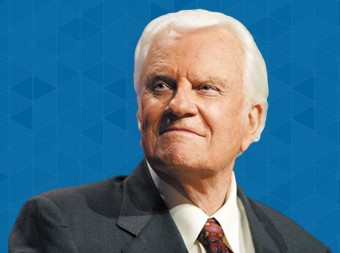How Stranded Astronauts Teach Us of Jesus' Journey to Earth
Posted by Temmy
Yesterday at 3:33am

Astronauts Butch Wilmore and Suni Williams are stuck in space. When they arrived at the International Space Station (ISS) last June, they were supposed to return home in eight to ten days. However, the vessel that transported them developed so many problems that it returned to our planet unmanned, leaving them marooned. Now NASA is reporting that the capsule that will bring the stranded astronauts home won’t launch until late March 2025 at the earliest.
All this to transport two humans 250 miles from the ISS to our planet. That’s the distance from Dallas to Houston.
Now imagine traveling from heaven to earth. If you were Jesus, how would you have done it?
How I Would Have Come at Christmas
Before time began, it was the Father’s plan to send his Son into the world to die for our sins (Revelation 13:8 NIV). But to fulfill this purpose, Jesus could presumably have come in any way he wished and died in any way he chose and inspired the prophets to predict his incarnation accordingly.
I know what I would have done if I were Jesus.
I would have come as an adult, bypassing the helplessness of infancy and the frustrations of adolescence. I would have come as royalty or at least as a person of means and reputation. I would have died in the least painful and most dignified manner possible, perhaps by beheading as a Roman citizen. I would have risen from the dead so publicly and spectacularly that those who executed me would be stunned, and my divinity would be obvious to all.
Jesus did none of these things. He chose the exact opposite, in fact.
He entered humanity as a tiny fetus and was born to peasant parents in a cow stall and laid in a feed trough. He grew up in obscurity and lived as an adult in relative poverty. He arranged to die in the cruelest, most demeaning, and tortured manner ever devised. He rose from the dead to appear only to his devoted followers.
“The Information’s Unavailable to the Mortal Man”
As surprising as was his Incarnation, those who know the Bible should not be surprised.
God chose a herdsman to leave his home, “not knowing where he was going” (Hebrews 11:8), travel seven hundred miles to the west, and become the patriarch of the Jewish people. He chose to wait until this man and his wife were elderly to bless them with the son that would continue their line. He chose a man whose name meant “deceiver” to father twelve sons who would become the twelve tribes of Israel.
He chose a teenager enslaved in Egypt to save his people from starvation and a fugitive criminal to lead them from Egyptian slavery to the Promised Land. He chose to lead them into that land through a flooded river and by marching around a fortified city until it fell. He chose a shepherd to slay a giant and become the forebear of the Messiah. He chose a locust-eating desert dweller to prepare the way for that Messiah.
And so it goes today:
God chose what is foolish in the world to shame the wise; God chose what is weak in the world to shame the strong; God chose what is low and despised in the world, even the things that are not, to bring to nothing things that are (1 Corinthians 1:27–28).
As Paul Simon sang,
God only knows
God makes his plan
The information’s unavailable
To the mortal man.
For what purpose? “So that no human being might boast in the presence of God” (v. 29).
What I Told My Muslim Tour Guide
We worship a God who is three and yet one. We place our faith in One who is fully God and yet became fully man. We trust a book that is divinely inspired and yet humanly written. We believe God is sovereign, yet we are free.
In one of his sermons, St. Augustine (354–430) famously noted: “To reach to God in any measure by the mind, is a great blessedness; but to comprehend him, is altogether impossible.” He explained:
Do you think that you can comprehend a body by the eye? You cannot at all. For whatever you look at, you do not see the whole. If you see a man’s face, you do not see his back at the time you see the face; and when you see the back, you do not at that time see the face.
How much less can we understand the Almighty God of the universe? As Augustine said, “If you can comprehend, he is not God.”
I once spent several weeks in Turkey doing research for a book I wrote on the seven churches of Revelation. My driver and guide was completing a graduate degree in history and archaeology at the time. While not devout in his Muslim faith, he was close to mine. The reason was that, to his academic mind, Christianity is illogical. He wanted a faith he could understand.
I responded with Augustine’s suggestion that if our finite, fallen minds can truly comprehend an infinite, perfect God, by definition, he is not God. If he is who he is and we are who we are, there must be a mystery to our understanding of him. This is “a feature, not a bug,” as a software engineer would say.
“The Immortal One for Those Who Are Mortal”
You may not be able to understand why God seems to be working in your life and world as he is. But could you choose to believe that the incomprehensibility of God’s nature is a reason to trust him more and not less? That his ways, because they are “higher than your ways” (Isaiah 55:9), are better? That his love is revealed in his suffering Son because it is nearly beyond imagining is the gift you need most today.
In the second-century Epistle of Mathetes to Diognetus, we read in chapter 9 that the Father “gave his own Son as a ransom for us, the holy One for transgressors, the blameless One for the wicked, the righteous One for the unrighteous, the incorruptible One for the corruptible, the immortal One for those who are mortal.”
Why did he act in such a surprising, seemingly contradictory way? His purpose was “to lead us to trust in his kindness, to esteem him our Nourisher, Father, Teacher, Counselor, Healer, our Wisdom, Light, Honor, Glory, Power, and Life, so that we should not be anxious.”
Why do you need to “trust in his kindness” today?
Source
|









